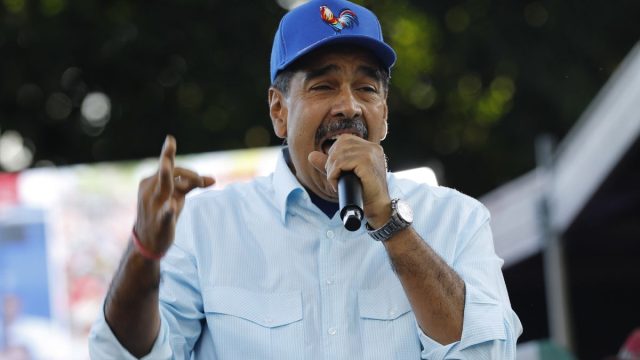Borrell, the EU’s top diplomat, has said publicly available voting records suggest Maduro was defeated in Venezuela’s presidential election.
Nicolás Maduro has launched a war of words against the European Union after the bloc questioned a decision by Venezuela’s highest court to ratify Maduro’s widely disputed victory in July’s presidential election.
In a speech delivered on Tuesday in Caracas, Maduro mainly targeted the head of EU diplomacy, Josep Borrell.
“Josep Borrell supports the Palestinian holocaust, the Gaza massacre. Josep Borrell is complicit in the Gaza massacre. And now he aims his weapons against Venezuela,” said Maduro, despite the fact that Borrell is considered the EU’s strongest critic of Israel’s war in Gaza.
Maduro went on to claim that Borrell was also being “led astray” by the US, and instigating an “open war against Russia from Ukraine.”
It comes after a statement on behalf of the EU issued by Borrell on Saturday said that publicly available voting records – or “minutes” – suggest that opposition leader Edmundo González Urrutia “would appear to be the winner” of the presidential election. of Venezuela “by a significant majority.”
Borrell also expressed concern about the “deepening of the political crisis in Venezuela,” where supporters of the political opposition have taken to the streets to protest against Maduro’s claim for a third six-year term as president.
The opposition refutes authorities’ claims that Maduro narrowly won the July election, with 51.2% of all votes, and has published evidence suggesting he was defeated by a margin of about 3.5 million. of votes.
But Venezuela’s highest court, made up mostly of Maduro loyalists, confirmed his re-election last week. The court claimed that vote counts posted online indicating that Maduro had lost by a landslide margin were false.
The United States and ten Latin American governments have come to “categorically reject” the court’s decision.
The count does not match the authorities’ claims
The EU has questioned the court’s ruling and asks Venezuela’s electoral authority – the National Electoral Council (CNE), made up mostly of Maduro allies – to public the complete and verified breakdown of the results.
So far, the CNE has not published the breakdown to counter opposition claims that González Urrutia won by a landslide.
“Only complete and independently verifiable results will be accepted and recognized to ensure that the will of the Venezuelan people is respected,” reads the statement of the EU.
EU Foreign Affairs spokesman Peter Stano declared on Tuesday that “it is not only the European Union that has very strong indications that the final vote count (…) does not really correspond to what was announced by authorities,” adding that a UN report also reaches the same conclusion.
He added that EU foreign ministers will discuss their response to the country’s political crisis when they meet in Brussels on Thursday (August 19). Any declaration or action would require the unanimous backing of all 27 EU member states.
In July, Hungary blocked a first statement by the 27 denouncing “irregularities” in the presidential vote.
“Thursday will offer Member States the opportunity to exchange views on everything that has happened in Venezuela since the presidential elections,” Stano explained.
Recently, the bloc considered “premature” the requests for new sanctions as long as the political crisis persists.
Relations between the EU and Venezuela have deteriorated since the EU denounced that Maduro’s re-election in 2018 was neither free nor fair, prompting the bloc to introduce sanctions as part of international efforts to weaken Maduro’s control over the can.







